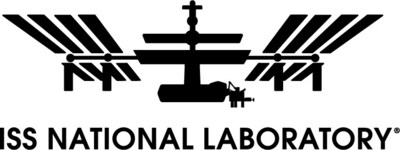New Space-Based Research May Pave the Way for First Astronaut with Diabetes
ISS National Lab-sponsored study launching on Axiom Mission 4 to advance diabetes management in space
KENNEDY SPACE CENTER, Fla., June 3, 2025 /PRNewswire/ -- An investigation launching to the International Space Station (ISS) on Axiom Mission 4 (Ax-4) aims to advance diabetes management in microgravity and open access to space for more people. Researchers will demonstrate the accuracy of glucose monitoring and the viability of insulin on the ISS, with the long-term goal of supporting astronauts with insulin-dependent diabetes on future space missions.
The ISS National Lab-sponsored project, Suite Ride, is a partnership between Axiom Space and Burjeel Holdings PLC, a healthcare services provider based in the United Arab Emirates. According to the International Diabetes Federation, one in nine adults worldwide—which amounts to nearly 590 million people—are living with diabetes. That number is expected to rise to more than 780 million people by 2045.
"Individuals with insulin-dependent diabetes historically have been disqualified from flying to low Earth orbit," said Alex Rubin, medical operations group lead at Axiom Space. "A main objective of the study is to demonstrate that a condition such as this can be accurately monitored and treated in microgravity, with the intent of eventually flying a crew member with the condition."
The team is sending several commercially available glucose monitors to the ISS to ensure they maintain a comparable level of accuracy in microgravity. One of the monitors samples interstitial fluid (the fluid filling the spaces between cells in the body) to measure glucose levels. Microgravity causes shifts in body fluids that could affect the accuracy of these devices.
"We intend to demonstrate that the monitors can be relied upon, or if there is a difference due to microgravity, that it is something we can calibrate to and resolve," Rubin said.
The study will also look at whether microgravity affects the integrity of insulin. Previous research showed that insulin pens can accurately administer doses during spaceflight. For this project, several different types of insulin will be sent to the ISS, with some stored at ambient or room temperature and some in cold stowage. The team will test the samples after they return to determine if microgravity had any effect.
Results from this investigation could make it possible to support people with diabetes on future space missions, expanding the pool of those eligible to serve as crew members. Findings could also lead to improvements in diabetes monitoring and care in remote areas on Earth.
"If we demonstrate that we can share data between a subject's glucose monitor in orbit and a physician on the ground in near real time, that could be implemented in a telemedicine setting with a clinician serving remote or austere locations on Earth," Rubin said. "If it can work in space, it could work on an oil rig, for example."
We have come a long way in monitoring and treating diabetes, Rubin said. "There was a time where there was the perception that people with the disease couldn't do certain things. Today, you can play in the NFL, you can race cars, you can do all sorts of things that may have been difficult before. It only makes sense that the next barrier we break is human spaceflight."
Ax-4 is scheduled to launch no earlier than June 10, 2025, at 8:22 a.m. EDT, from Florida. For additional information on ISS National Lab-sponsored investigations launching on Ax-4, visit our launch page.
Download a high-resolution image for this release: Axiom Mission 4 Crew
About the International Space Station (ISS) National Laboratory:
The International Space Station (ISS) is a one-of-a-kind laboratory that enables research and technology development not possible on Earth. As a public service enterprise, the ISS National Laboratory® allows researchers to leverage this multiuser facility to improve quality of life on Earth, mature space-based business models, advance science literacy in the future workforce, and expand a sustainable and scalable market in low Earth orbit. Through this orbiting national laboratory, research resources on the ISS are available to support non-NASA science, technology, and education initiatives from U.S. government agencies, academic institutions, and the private sector. The Center for the Advancement of Science in Space® (CASIS®) manages the ISS National Lab, under Cooperative Agreement with NASA, facilitating access to its permanent microgravity research environment, a powerful vantage point in low Earth orbit, and the extreme and varied conditions of space. To learn more about the ISS National Lab, visit our website.
As a 501(c)(3) nonprofit organization, CASIS accepts corporate and individual donations to help advance science in space for the benefit of humanity. For more information, visit our donations page.
Media Contact: | Patrick O'Neill |
904-806-0035 | |
International Space Station (ISS) National Laboratory |
1005 Viera Blvd., Suite 101, Rockledge, FL 32955 • 321.253.5101 • www.ISSNationalLab.org |
![]() View original content to download multimedia:https://www.prnewswire.com/news-releases/new-space-based-research-may-pave-the-way-for-first-astronaut-with-diabetes-302472356.html
View original content to download multimedia:https://www.prnewswire.com/news-releases/new-space-based-research-may-pave-the-way-for-first-astronaut-with-diabetes-302472356.html
SOURCE International Space Station National Lab


